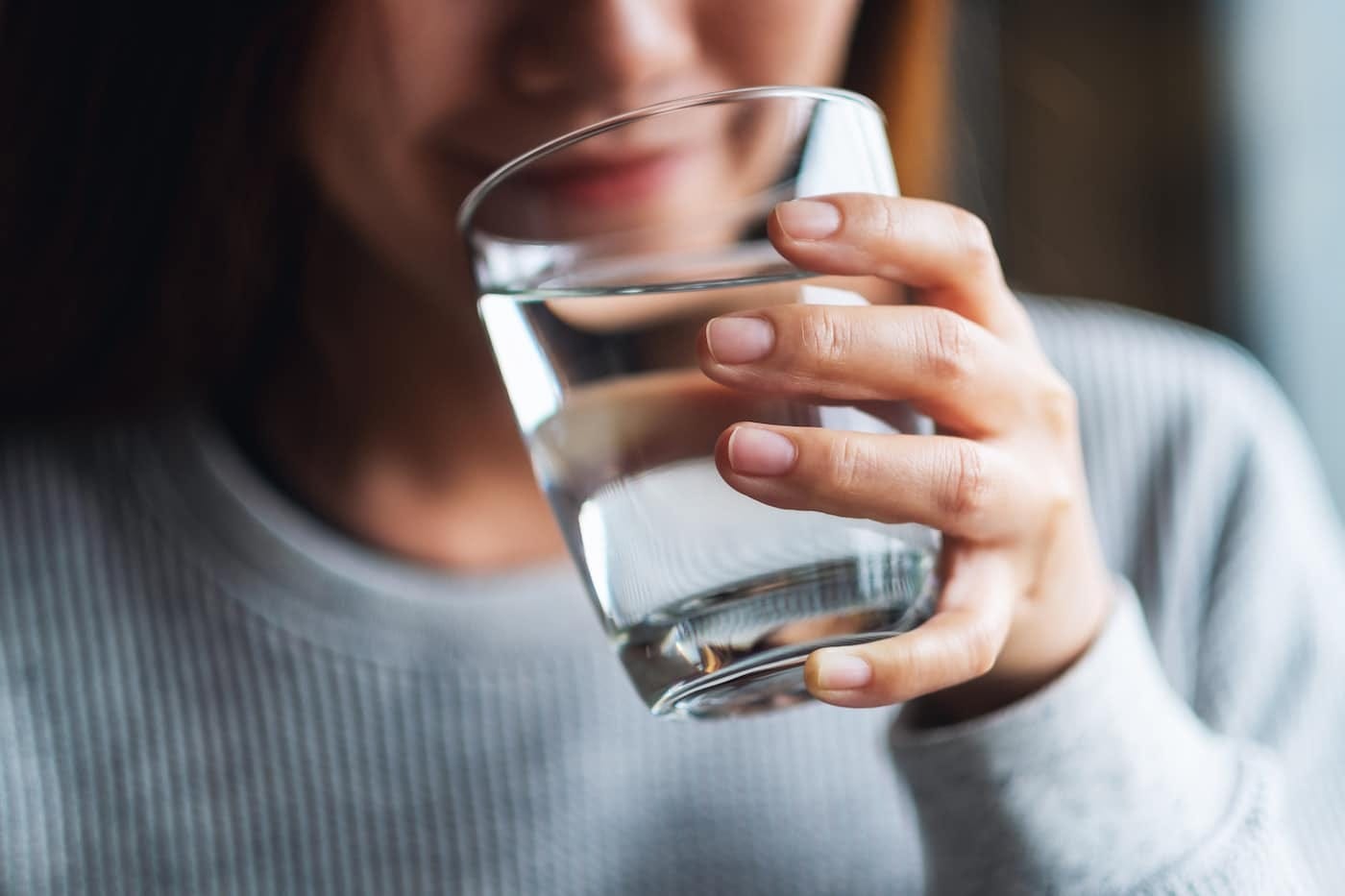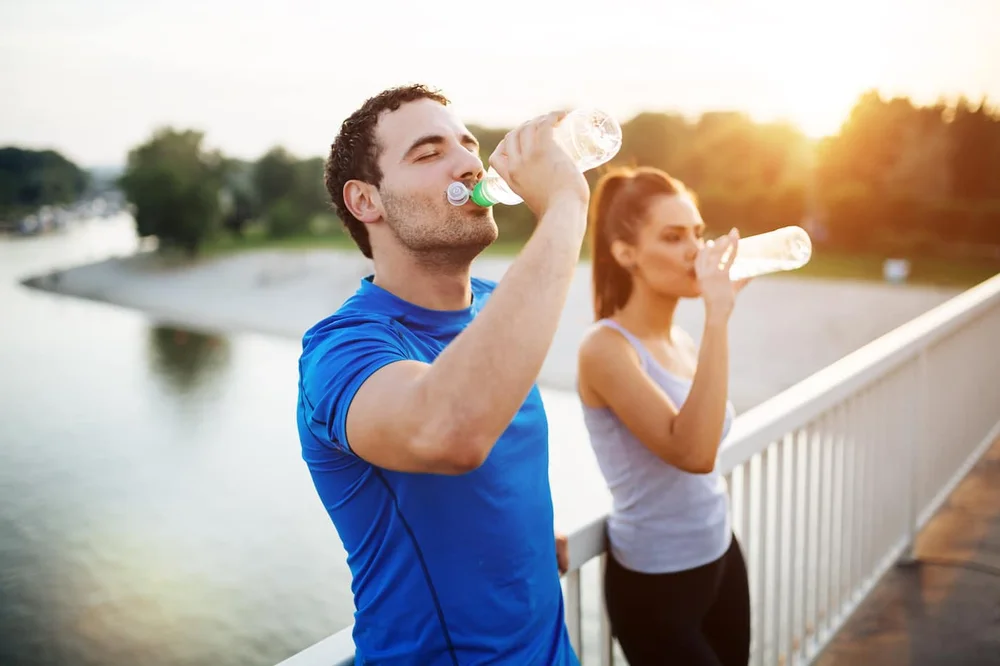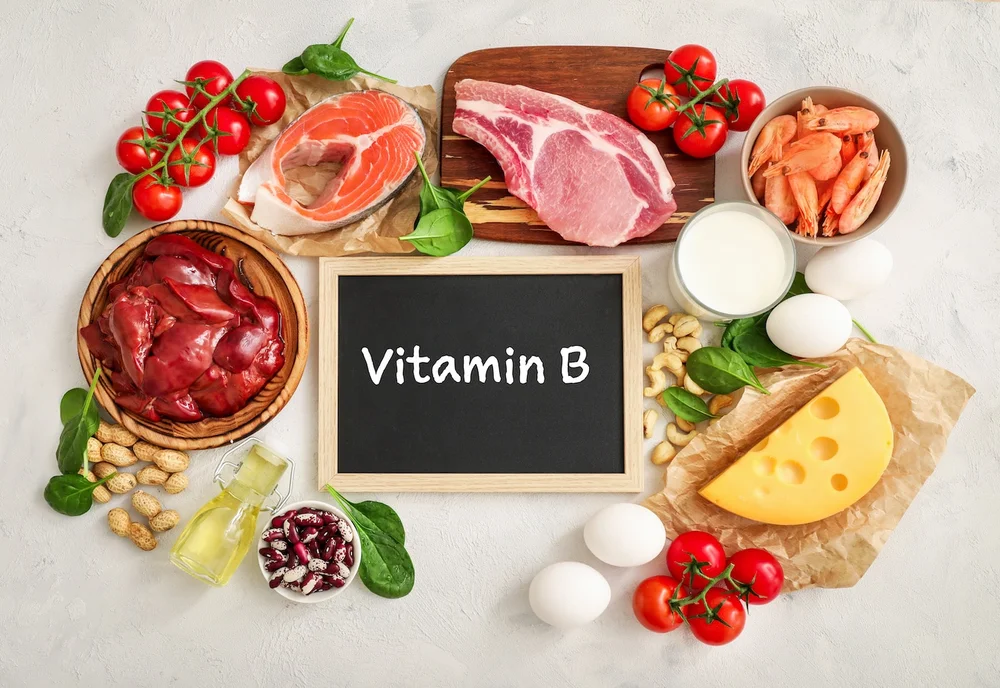What’s the Importance of Hydration to Overall Health and Wellness?
Can you guess what’s the most important nutrient for health, and the one whose absence will be lethal within days?
Surprisingly, it isn’t protein, carbohydrates, fat, or even a vitamin or mineral.
It’s water.
Water Essentials
Most of us don’t think of water as an essential nutrient, but indeed it is. Every day, we need ample water from our diet to rehydrate the body fluids that are lost through metabolism, perspiration, breathing, and elimination – which on average, is about 2-3 quarts.
Hydrating our bodies is critical for many bodily functions such as preventing overheating, lubricating joints and tissues, maintaining healthy skin, and ensuring healthy digestion and elimination, to name a few.
Without proper hydration, we can experience the effects of dehydration (a water deficit in the body), which can range from mild to severe, and even be life-threatening.
More common, though, are the effects of suboptimal hydration, which is actually a new area of scienific study. Recent research from 2022 found that adults who stay well-hydrated appear to be in better health, experience fewer chronic health conditions, and enjoy greater longevity than adults who have suboptimal hydration.
The study underscores the importance of aiming for optimal hydration. Giving your body the fluids it needs may be the missing link to feeling your best.
The Importance of Hydration
Humans are largely made of water – it accounts for roughly 60% of our body weight!
Hydration is key for many more areas of health and bodily functions than mentioned above, including the following and more:
- Transporting nutrients
- Giving structure to cells and tissues
- Supporting healthy heart function
- Athletic performance
- Weight management
- Healthy cognition
- Mood
- Urinary and kidney function
- Spinal cord protection
- Lubricating internal organs
- Alertness
Proper hydration also may play a significant role in both microbiome and immune health as well, emerging research shows.
Hydration is truly foundational to health.
Optimal Hydration
You may be wondering, how much hydration do I need?
There’s no exact answer to that as hydration needs vary from person to person, depending on age, climate, activity level, weight, and other factors.
That said, here’s what the U.S. National Academies of Sciences, Engineering, and Medicine recommends for food and drink combined:
- For men: About 3.7 liters or 125 ounces (15.5 cups)
- For women: About 2.7 liters or 91 ounces (11 cups)
However, those figures are for total consumption of fluids from beverages and food. So, a more accurate recommendation for daily fluid only would be 100 ounces or 12.5 cups for men, and 73 ounces or just over 9 cups for women. (The rest would come from food.)
If that sounds like a tall order, you aren’t alone. While data is limited, it appears that most U.S. adults aren’t optimally hydrated.
Some research indicates that about 17-28% of older adults are chronically dehydrated. And a Centers for Disease Control and Prevention (CDC) survey of 4,000 U.S. adults showed that only 22% report drinking 8 or more cups of water a day.
Dehydration
When your body loses or uses more fluids than you take in, and it doesn’t have adequate amounts of water and other fluids to carry out bodily processes and functions, you can become dehydrated.
Of course, dehydration most often occurs from not getting enough fluids in your diet.
However, there are other causes. For example, you’re more likely to become dehydrated if you’re out in hot weather and/or exercising. Diuretic and some medications can cause dehydration as well.
Sometimes severe hydration can occur after an illness that involves high fever, vomiting, or diarrhea. When dehydration is severe, an individual may need IV fluids.
A great way to check if you’re dehydrated is to pinch the skin on the back of your hand and pull up. If it falls back slowly when you release the skin, you probably need some fluids. If it drops back quickly, you’re probably okay.
Your body will start showing signs the longer you’re dehydrated. Here are some of the most common signs of dehydration:
- Feeling thirsty or lightheaded
- Headache
- Bad breath
- Muscle cramps
- Dry mouth
- Fever and chills from heat illness
- Cravings for sweets
- Fatigue
- Having dark-colored, strong-smelling urine
- Constipation
- Urinating less often than usual
- Sunken eyes
- Dry skin
- Feeling cold
- Irritability, low mood
- Confusion
- Trouble concentrating or remembering
- Low blood pressure
You may experience some of these even if you’re just mildly dehydrated with as little as a 2% water deficit.
Hydration is the solution.
4 Simple Tips for Staying Optimally Hydrated Throughout the Day

- Sip Water
Experts say that if you drink all your water at once, it will likely go straight through you. That’s because the water floods your body, decreasing electrolyte levels, which signals to your kidneys to get rid of fluids to maintain a homeostasis. So, it’s better to sip water throughout the day!
- Enjoy Healthy Beverages
All drinks count toward your daily fluid intake, but some are better than others. Avoid sugar-sweetened soda, opting for unsweetened flavored water, mineral water, herbal tea, or even black/green tea or coffee in moderate amounts. (Counter to general belief, black tea and coffee in moderate amounts don’t dehydrate, according to research.) Plant/dairy milk and fresh juice (in moderation) are also good options.
- Eat Water-Rich Foods
Eating fruits and vegetables with upwards of 90% water content is almost like drinking water! What’s more, they’re loaded with nutrients and fiber.
So enjoy vegetables like lettuces, celery, cucumber, radishes, zucchini, watercress, and tomatoes. Delight in water-rich watermelon, strawberries, grapefruit, and cantaloupe.
Don’t forget foods like brothy soups and fresh, plain yogurt have high water content too.
- Water Plus Electrolytes Before/After Exercise
It’s really important to stay hydrated when you work out. Drink plenty of water before and after. If you participate in intense exercise, choose an unsweetened water with electrolytes to replace the electrolytes lost through sweat.
Athletes who consume large quantities of water can actually overdo it. It’s called exercise-associated hyponatremia and can be life-threatening. It usually happens when athletes drink even if they aren’t thirsty.
Importance of Hydration for Health
If you tend to be an low water drinker, making healthy hydration a habit may provide some welcome health benefits like better cognition, mood, and energy levels.
Give it a try and see how you feel.
At BrainMD, we’re dedicated to providing the highest purity nutrients to improve your physical health and overall well-being. For more information about our full list of brain healthy supplements, please visit us at BrainMD.
- Here Are Some of the Best Tension Release Exercises to Help You Feel Your Best! - April 17, 2024
- Foodscaping: How to Grow Healthy Foods In Your Own Garden! - April 12, 2024
- Eat Your Fruits and Veggies (Don’t Drink Them) - March 29, 2024



